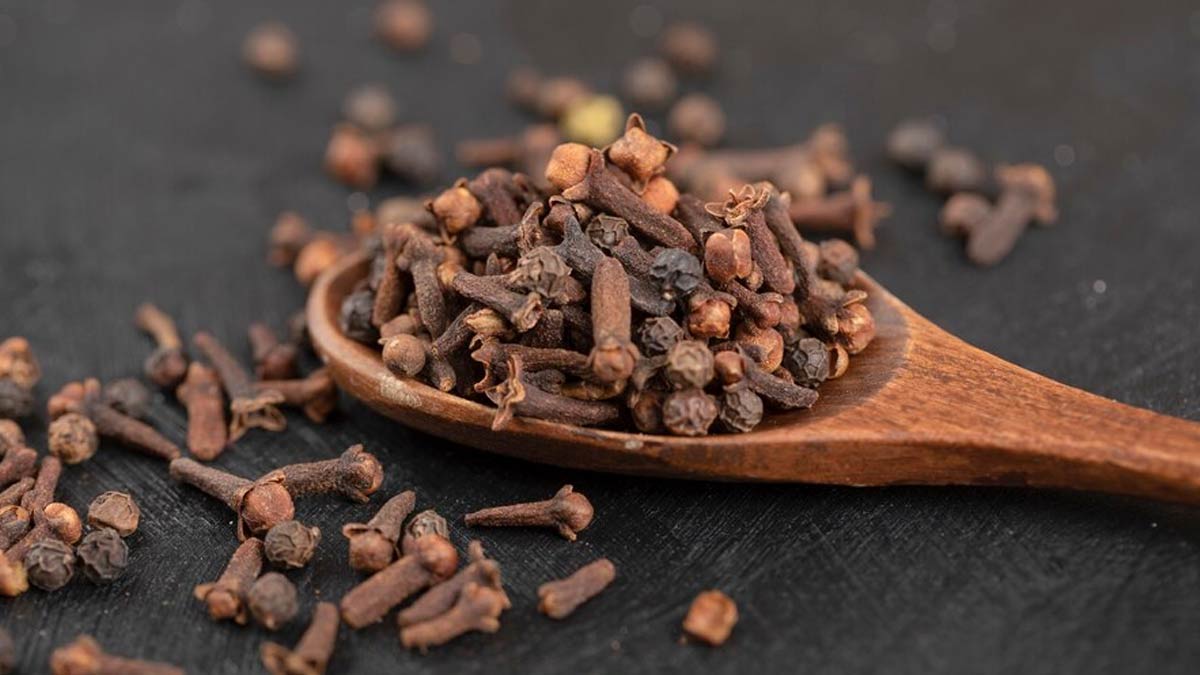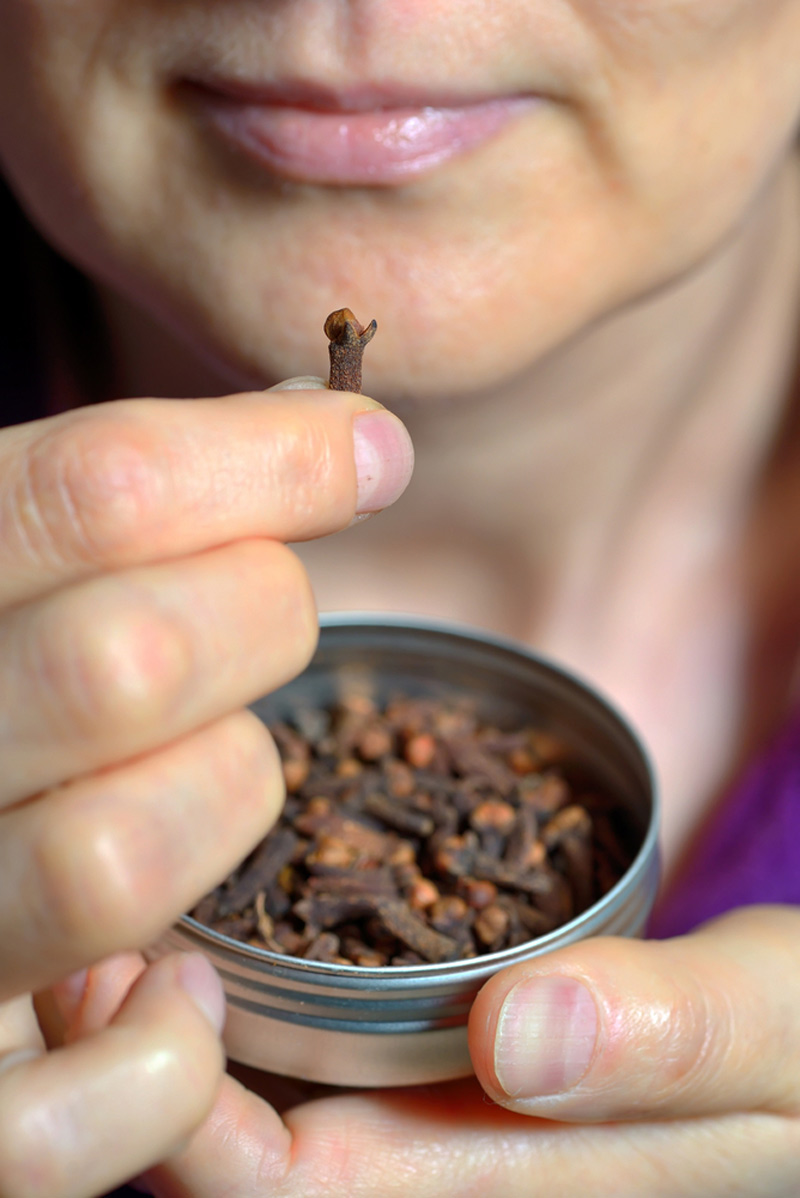
Did you know chewing on a clove can have a plethora of health benefits, ranging from promoting oral health to aiding digestion? Clove is a staple spice found in Indian households, which is known for its warm and aromatic flavour. It is added to various foods to enhance flavour and nutrition. In this article, we explain how chewing cloves can be beneficial for your health.
Table of Content:-
Health Benefits Of Chewing Cloves

Improved Digestion
Chewing on a clove after meals can aid digestion by stimulating the production of digestive enzymes in the mouth and stomach. This is due to the presence of a compound known as eugenol containing carminative properties, which helps alleviate gas, bloating, and indigestion. Clove can prevent discomfort and promote overall digestive wellness by promoting proper digestion.
Relief from Nausea
Clove has been used for centuries as a natural remedy for nausea and vomiting. Chewing on a clove can help soothe an upset stomach and alleviate feelings of nausea, making it an excellent choice for individuals prone to digestive disturbances after meals.
Also Read: DIY Clove Hair Tonic For Hair Health: Benefits And How to Make It

Antibacterial Properties
According to a 2020 study, cloves possess antimicrobial properties, indicating their ability to inhibit the growth of microorganisms, such as bacteria. Chewing on a clove can help kill bacteria in the mouth and throat, reducing the risk of oral infections and promoting oral hygiene. Also, clove can inhibit the growth of bacteria that cause bad breath, leaving your mouth feeling fresh and clean.
Pain Relief
Clove contains compounds with analgesic properties, making it effective in relieving toothache and gum pain. Chewing on a clove can provide temporary relief from dental discomfort and inflammation, making it a popular natural remedy for oral health issues.
Anti-inflammatory Benefits
Clove has pain-relieving properties as well as anti-inflammatory effects that can help to reduce swelling and inflammation in the mouth and throat. Chewing on a clove can provide relief from conditions, such as sore throat, gingivitis, and mouth ulcers, promoting oral comfort and healing.
Antioxidant Protection
Clove is rich in antioxidants, which help neutralise free radicals and protect the body from oxidative stress. You can boost your antioxidant intake and support overall health and well-being by chewing on a clove after meals.
Also Read: Why Do We Need Antioxidants In Changing Weather? Expert Explains
Blood Sugar Regulation
Chewing on a clove after meals may help stabilise blood sugar levels and prevent postprandial spikes, reducing the risk of complications associated with diabetes.
According to a study conducted in 2019, individuals both with and without prediabetes experienced a notable decrease in post-meal blood glucose levels after consuming 250 milligrams (mg) of clove extract daily for 30 days.
Stress Reduction
The aroma of clove has been shown to have calming and stress-relieving effects on the mind and body. Chewing on a clove after meals can help promote relaxation and reduce stress and anxiety, enhancing overall mental well-being.
Weight Management
Some studies suggest that clove may aid in weight management by boosting metabolism and promoting fat burning. Chewing on a clove after meals may help support weight loss efforts by enhancing digestion and promoting satiety. According to a 2017 study involving mice, researchers observed that clove extract decreased the occurrence of obesity induced by a high-fat diet.
While clove is generally safe for most people when consumed in moderation, it's essential to consult with a healthcare professional before using clove as a remedy, especially if you have underlying health conditions or are taking medications. Additionally, individuals with a known allergy to cloves should avoid using them.
[Disclaimer: This article contains information for informational purposes only, hence, we advise you to consult your expert if you are dealing with any health issues to get the necessary treatment.]
Also watch this video
How we keep this article up to date:
We work with experts and keep a close eye on the latest in health and wellness. Whenever there is a new research or helpful information, we update our articles with accurate and useful advice.
Current Version